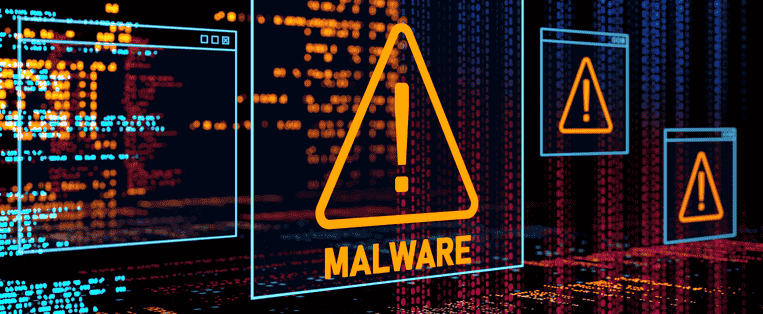Introduction
With the rise of artificial intelligence (AI) in multiple industries, one critical question keeps resurfacing: Will AI replace cybersecurity? The promise of faster detection, predictive analysis, and automated response makes AI a powerful tool in fighting cyber threats. However, cybersecurity is more than just pattern recognition it also requires contextual understanding, ethical decisions, and human oversight.
This blog explores whether AI can truly replace cybersecurity, its best use cases, limitations, and the future role of human-AI collaboration.
Can AI Replace Human Cybersecurity Experts?
The short answer: No, AI cannot fully replace humans in cybersecurity. While it automates repetitive tasks and strengthens threat detection, AI lacks the critical thinking and ethical decision-making needed to handle complex cyberattacks.
Cybercriminals are also using AI to create advanced threats, meaning human cybersecurity professionals remain essential for strategy, policy-making, and advanced threat hunting.’

Case Study: When AI Fell Short and Human Cybersecurity Experts Saved the Day
In 2021, a large financial institution deployed advanced AI-based cybersecurity systems to monitor its networks. The AI system was designed to flag unusual patterns in transactions and employee access to prevent insider threats and fraud.
What Happened
The system began flagging a series of false positives employees logging in remotely during irregular hours. While AI identified them as suspicious logins, it failed to notice the subtle behavior of a sophisticated insider threat actor who was deliberately mimicking legitimate user activity.
AI’s Limitation
The attacker knew how the AI detection models worked and intentionally blended their actions within “normal” ranges of behavior. Since AI relies heavily on past data patterns, it couldn’t recognize the attacker’s strategy.
Human Intervention
A team of cybersecurity experts stepped in to investigate the flagged anomalies. Instead of dismissing them as false positives, they noticed small contextual red flags:
- Login attempts from unexpected geographic regions.
- Slight time variations in repeated access attempts.
- The attacker’s use of real employee credentials but with unusual sequence patterns.
By digging deeper, the experts uncovered a coordinated insider attack aimed at transferring sensitive financial data. The breach was contained only because of human judgment, contextual awareness, and strategic decision-making things AI couldn’t replicate.
Key Takeaway
This case study highlights that AI alone is not enough in cybersecurity. While AI automates threat detection, it lacks contextual intelligence. Human cybersecurity experts remain essential for:
- Identifying advanced persistent threats (APTs).
- Understanding intent behind attacks.
- Making ethical, high-stakes security decisions.
This proves that the future of cybersecurity is not about AI replacing humans, but about AI empowering cybersecurity experts with better tools.

Benefits of AI in Cybersecurity
- Speed: AI detects threats in real-time.
- Scalability: AI can monitor thousands of endpoints simultaneously.
- Accuracy: Machine learning models minimize false positives over time.
- Cost Efficiency: Automating routine tasks reduces manual effort.
Limitations of AI in Cybersecurity
- Bias in Training Data: AI decisions are only as good as the data it’s trained on.
- Lack of Context: AI struggles with understanding intent behind attacks.
- Evolving Threats: Hackers adapt faster than static AI models.
- Ethical Dilemmas: Decisions like shutting down systems or blocking users require human judgment.
You may also like our another blog on: Protecting Personal Data and Intellectual Property: The Importance of Information Security
The Future: Human + AI Collaboration in Cybersecurity
Instead of viewing AI as a replacement, the future lies in human-AI collaboration. AI handles detection, automation, and monitoring, while cybersecurity experts focus on strategic response, ethical decisions, and creative problem-solving.
In fact, businesses adopting a hybrid cybersecurity approach combining AI automation with human oversight are best positioned to defend against next-generation cyber threats.
Conclusion
So, will AI replace cybersecurity? The answer is no but it will transform it. AI is becoming an indispensable tool, not a replacement. Human experts remain critical in ensuring security strategies adapt to ever-changing digital threats.
Cybersecurity’s future is about AI empowering humans, not replacing them.
FAQs
Q1. Will AI completely replace cybersecurity jobs?
No, AI will not replace jobs but shift roles—automating routine tasks while humans focus on complex strategies.
Q2. What role does AI play in modern cybersecurity?
AI plays a key role in detecting threats, analyzing patterns, preventing breaches, and automating responses.
Q3. What are the risks of relying too much on AI in cybersecurity?
Overreliance can lead to missed attacks, biased results, and lack of human oversight in decision-making.
Q4. Can hackers use AI for cyberattacks?
Yes, hackers are already using AI to create advanced phishing schemes, deepfakes, and adaptive malware.
Q5. What is the best cybersecurity strategy for businesses?
A hybrid approach combining AI-powered automation with human expertise provides the strongest defense.
Q6. Which industries benefit most from AI in cybersecurity?
Industries like finance, healthcare, and technology benefit greatly since they deal with sensitive and high-value data.

